
This article was taken from http://www.rugbyworldcup.com
It was an article that describes the whole situation of Samoa during the 1991 Rugby World Cup.
With less than 70 days to go to the start of Rugby World Cup 2007, we relive the memories of the 1991 tournament, one that heralded the first real upset and a case of what might have been.
Wales had finished third in the inaugural Rugby World Cup and hopes were high of bettering that performance in 1991, not least because they would play their Pool 3 matches on home soil at Cardiff Arms Park.
The quarterfinals was the minimum expected by players and the nation as a whole from a Pool that included Australia – the team Wales had beaten 22-21 in the third place playoff in 1987 – as well as Argentina and World Cup debutants Western Samoa.
Wales opened their campaign against Western Samoa, a nation few people knew much about and one the home side were therefore expected to beat comfortably on Sunday 6 October as captain Ieuan Evans recalled with Total Rugby.
“Well to be honest, the expectation was to beat Western Samoa. That was the expectation. We’d gone through a period of upheaval as we tend to do in Wales prior to World Cups, sack the coach, change everything,” admitted Evans.
“I was made captain a matter of weeks before the tournament and so there’d been a lot of upheaval in our preparation and I think it showed a little bit in the start of the World Cup, but nevertheless it was a game we felt we should have won.”
Evans and the Welsh nation may have expected victory, but the Pacific Islanders clearly hadn’t read the script and enjoyed a dream debut, their fast running and tough tackling display simply too much for Wales to handle.
Rising to the challenge
To’o Vaega’s try may have been controversial in that it appeared Wales scrum half Robert Jones had touched the ball first, but there was no doubt about their other five-pointer from flanker Sila Vaifale as Western Samoa ran out deserved 16-13 winners.
“It was very physical, very aggressive, very confrontational, that’s what they wanted and the game really broke up which suited them as well. It was greasy under foot, there were a lot of hits going in,” recalled Evans, a try scorer in the defeat.
“I don’t think physically we were up for the challenge.”
Western Samoa certainly had been with the likes of Pat Lam, Apollo Perelini, Brian Lima, Frank Bunce and captain Peter Fatialofa in their ranks, much to the delight of the 15,000 people who watched the match live at the stadium in the capital Apia at 1am.
More significantly though, Western Samoa had become the first team to beat a major rugby playing nation and the consequences of the result – which they followed with a 9-3 loss to Australia and 35-12 defeat of Argentina – were huge for Pacific Islands rugby.
“As a past player you always get asked what is your highlight and to this day it’s still that day because of what it did for Samoan rugby, Pacific Island rugby,” admitted Pat Lam, the Western Samoa number 8 on that famous day.
Luck of the Irish?
“We got a full invitation to play the All Blacks, the Wallabies, all the Home Unions up here in the northern hemisphere, so it really opened the way for Pacific Island rugby and it really instilled a huge amount of pride in the game and a lot of interest in the game.”
Wales never recovered from the loss, crashing out in the Pool stages as Australia and Western Samoa reached the quarterfinals, where the Islanders dream would ultimately come to an end with a 28-6 defeat by Scotland at Murrayfield.
“We felt we let our nation down,” admitted Evans. “Western Samoa played very well and we ended up being the butt of all jokes. It was really pretty depressing and pretty distraught at the back end of it.”
However if the Welsh team felt they had let down their nation, the same could not be said of their Irish counterparts as they came within a hairs breath of causing an upset of their own against Australia in the quarterfinal at Lansdowne Road.
Roared on by the passionate home crowd in Dublin, Ireland looked to have scored the winning try through Gordon Hamilton in the 75th minute, the flanker collecting a pass 40 metres out, evaded one tackle and then had the pace to touch down.
Nice while it lasted
Hamilton was mobbed on the pitch by fans as emotions ran riot, Ralph Keyes subsequent conversion giving Ireland a slender 18-15 lead and leave them within touching distance of a first ever semi final appearance.
“Jim Staples kicked it through and Jack Clarke trickled in behind Campo and he fiddled about with it a bit and Jack Clarke picked it up and it was just straight line, run onto the ball at pace and couldn’t believe my luck really!” remembered Hamilton.
“As a kid growing up you watch famous tries being scored. The nicest thing in those days when crowd control wasn’t what it is now, the crowd came onto the pitch and it when they came on and threw their arms around me that it was when it dawned on me that this was something quote important … for the time that it lasted!”
Campese may have suffered a lapse in concentration to allow Ireland to score in the corner, but he atoned for that minutes later when he ran into midfield and although held in the tackle, managed to pass to Michael Lynagh for the try that broke Irish hearts.
“As he [Lynagh] scored, I thought he hadn’t scored the try because in Lansdowne Road there was just eerie silence,” recalled Australia centre Tim Horan, who would be named Player of the Tournament in the 1999 tournament.
Thank heavens for Lynagh
“It was probably the first and only time I have ever heard an Australian team score a try and the only people you could hear were the commentators in the grandstand commentating on the match, because the whole ground was just deathly quiet.”
Lynagh had assumed the captaincy when his halfback partner Nick Farr-Jones went off injured in the first half, perhaps fortunately for Australia or they may not have beaten Ireland and gone on to success New Zealand as world champions.
“Had I been out there at the time and they scored that try, I would have read the riot act to the guys, I would have probably kicked short to secure the possession,” revealed Farr-Jones, who recovered to play in both the semi final and final.
“When that scrum came, I am pretty sure I would have said to Michael, get in the slot mate, we’re going for a drop goal, let’s try and even this game up, take it into extra time. Michael did it all differently!
“It was process thinking rather than scoreboard thinking and as I said, thank God he was out there!”

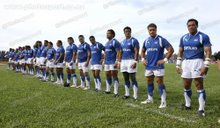

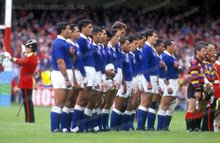

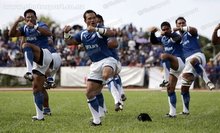

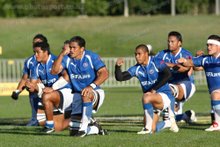
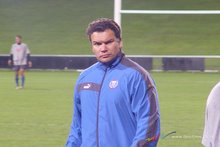


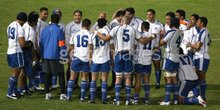
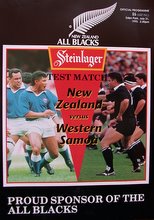
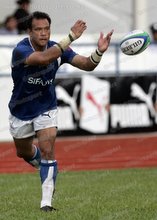
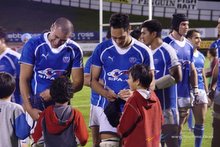

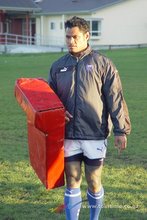
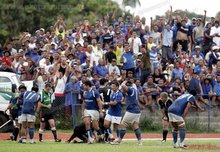
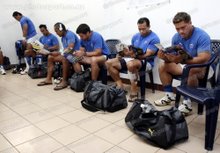
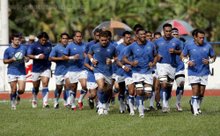
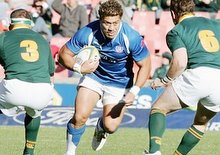

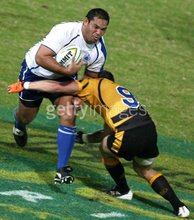
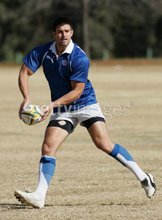
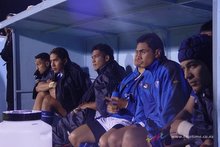
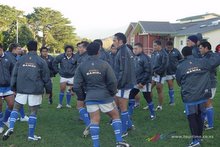
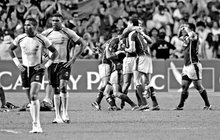

No comments:
Post a Comment